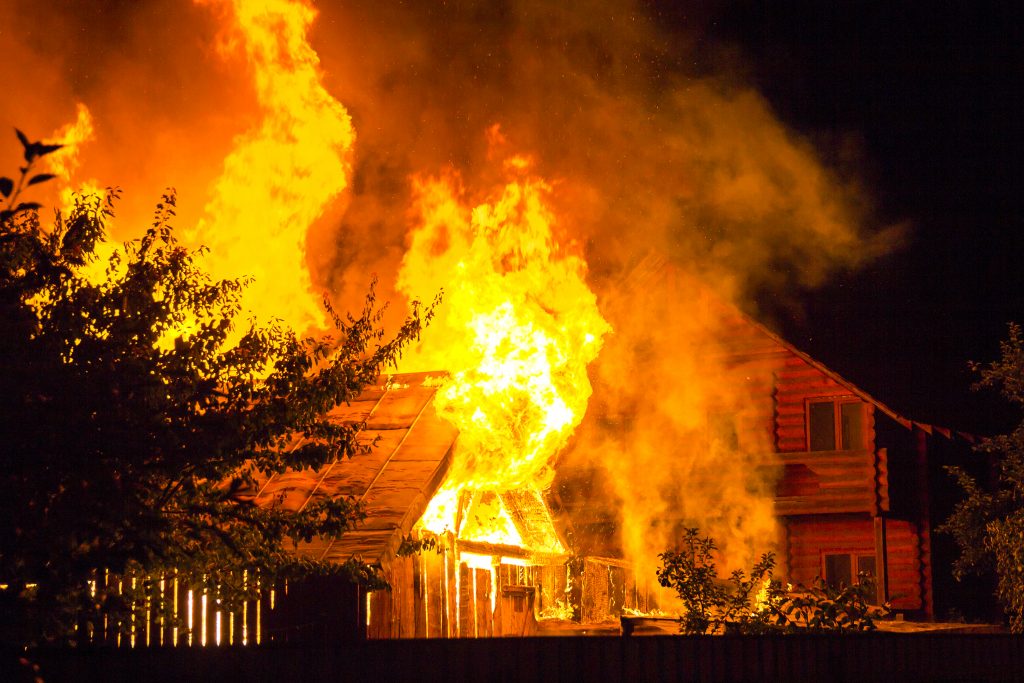Definition and Examples of Property Insurance and Injuries
Property and Casualty (P&C) insurance is two types of insurance. The local insurance side protects your personal property, and the casualty section covers if you accidentally injure someone or damage their property.
The conditions that cover this type of insurance depend on the type of insurance. For example, a homeowners insurance policy provides real estate insurance for your property and personal property and credit insurance if a visitor gets on your property and is injured.
How Real Estate Insurance Works

Risks covered by local insurance often include weather-related suffering, including damage and loss caused and due to by fire, smoke, wind, hail, the impact of snow and ice, lightning, and more. Real estate insurance also protects against property damage and theft, including property and its contents. Real estate insurance also provides credit if another non-property owner or tenant gets injured while on site and decides to sue.
Property insurance policies generally do not cover the damage caused by various events, including tsunamis, floods, sewage maintenance and sewerage, groundwater runoff, stagnant water, and several other water sources. For example, mold is usually not covered or earthquake damage. Additionally, most policies do not cover the worst situations, such as nuclear incidents and war acts of terrorism.
What the Home Owner Policy Provides
Although they can be customized indefinitely, the homeowner’s insurance policy has certain general features that provide the costs covered by the insurer.
Internal or Extermination of Your Home
In the event of damage that was caused by fire, hurricanes, lightning, damage to property, or other covered disasters & incidents, your insurer will compensate you for having your house repaired or completely rebuilt. However, damage or flooding, earthquakes, and poor home care are usually not covered, and you may need different riders if you want that kind of protection. Private garages, sheds, or other buildings in the area may also need to be covered separately using the same guidelines as the main house.
Personal Responsibility for Damage or Injury
The inclusion of a legal obligation protects you from lawsuits against others. This section includes even pets!. Thus, if your dog bites your neighbor, Doris, whether the bite occurs in your area, your insurance will cover their medical expenses. Or, if your child breaks their Ming container, you can file a claim to return it. And if Doris slips into a broken vase and successfully claims pain and suffering or lost wages, she will be covered by that, too, as if someone had been injured in your area.

Hotel or House Rental When Your Home Is Rebuilt or Renovated
It doesn’t happen, but In the case or if you find yourself forced to move out of your house for a while, it will undoubtedly be the best cover you ever bought. This part of the insurance cover, known as additional living expenses, can reimburse you for rent, hotel room, restaurant food, and other accidental costs while waiting for your home to be rebuilt. Before you book a suite at Ritz-Carlton and order caviar for room service, however, keep in mind that the policies place strict daily limits and content. Of course, you can extend those daily limits if you are willing to pay more cover.
Different Types of Home Owners Coverage
All insurance is not created equal. For example, inexpensive homeowners insurance will probably give you a smaller coverage and vice versa.
In the U.S., several types of homeowners insurance have been standardized in the industry; designated HO-1 by HO-8, and offer different levels of protection depending on the homeowner’s needs and the type of accommodation covered.
What Does Homeowners Insurance Not Cover?
Although homeowner insurance covers many situations where losses may occur, some events are usually not included in policies, such as natural disasters or other “acts of God” and military actions.
What if you live in an area of flood or storm? Or a room with a history of earthquakes? You will need passengers for these or additional earthquake insurance or flood insurance. There are trash cans and ditches you can add and . An ID recovery cover that covers the costs and all the expenses associated with being a victim of identity theft.
Understanding Real Estate Insurance

There are three types of local insurance: replacement costs, actual cost, and extended replacement costs.
Replacement costs include repairing or replacing a property with the same or equal value. The inclusion is based on the cost of replacement costs in cash.
The actual cash amount payable to the owner or rental reimbursement deducts depreciation. So, for example, if the damaged item is ten years old, you get value of 10-year-old item, not a new one.
Increased replacement costs will pay beyond the coverage limit if construction costs are increased; however, this usually does not exceed the 25% limit. When you buy an insurance policy. The limit is the maximum profit the insurance company will pay in a particular case or event.
How to Compare Home Insurance Companies
If you are looking for an insurance company, here is a search and purchase tips checklist.
1. Compare national costs with insurance
You want to make sure you go with a legitimate and credible provider when it comes to insurance. Your first and foremost step towards this direction should be to visit the website of your local Insurance Department. To read the rating of each licensed home insurance company in your region and any consumer complaints lodged against the insurance company. The site should also provide the average general home insurance costs in different states and cities.
2. Check company health

Check out the local insurance companies you are considering. For their schools on the websites of top credit companies (such as A.M. Best, Moody’s, J.D. Power, Standard & Poor’sPoor’s) and those of the National Insurance Commission and Weiss Research. These sites track consumer complaints against companies and general customer feedback, claims to process, and other data. In some cases, these websites also measure the financial life. Of a local insurance company to determine if the company can pay claims.
3. See response requests
Following a significant loss, the burden of paying out-of-pocket to repair your home and . Waiting for a refund from your insurance may put your family in a difficult financial position. As a result, most insurance brokers are a significant fundraising activity, including handling claims.
Before purchasing a policy, find out if licensed operators or third-party call centers will accept and hold your claim calls. “Your agent should be able to help and provide feedback. And review on his or her experience with the network company and its market reputation,”. Mark Galante, The President of field operations at PURE Group of Insurance Companies. “Seek out a network company with a proven track record of paying on time . And make sure you understand your insurance policy regarding mortgage offers. For example, the insurance company withholds a portion of its payment until the homeowner proves it has started repairs.”
4. Current Policy Owner Satisfaction
Every company will say it has a good application service. However, break the cycle by asking your agent or company representative the last level of insurance . That is, what percentage of policymakers renew each year. Most companies report endorsements of between 80% and 90%. You can also find satisfaction information in annual reports, online reviews, and positive testimonials from people you trust.
5. Get More Quotes

“Getting many quotes is important when looking for insurance; however, it is essential for homeowner insurance as the supply requirements can vary greatly, ” .Said Eric Stauffer, former president of Expert InsuranceReviews.com.” “Comparing several companies will bring the best results overall. “”
How many quotes should you get? Five or more will give you a good idea of what people offer and benefit from the discussions. But before collecting quotes from other companies. Ask for a price from the insurance brokers with whom you already have a relationship. As mentioned earlier, in most cases, the network company you already do business. W
ith (your car, boat, etc.) may offer you better prices because you are an existing customer.
Some companies offer special discounts to seniors or people working from home. The reason is that both groups tend to be in the yard more often.
Leaving the house less likely to be report a break in.
6. Look beyond the price
The annual premium is usually the one that chooses to buy home insurance, but don’t just look at the prices. “No two insurers use the same policy forms and recommendations, and policy names can be very different,” the Bank said. “Even if you think you are comparing apples to apples. There is usually a lot to it, so you need to compare the coverage and the limits.”
7. Talk to a Real Person
Stauffer feels that the best way to get quotes is to go directly to insurance companies talk to an independent agent. Who works with multiple companies instead of a “captive” insurance agent or financial planner. Working for just one home insurance company. However, remember, “a licensed retailer often attaches its assets to policies and policy renewals. This can cost hundreds more per year,” he notes.
The Bank urges consumers to ask questions that give them a detailed understanding of their options.”You want to consider different credit conditions to measure yourself better. If it makes sense to opt for high deductible and commitment,” he says.
Thank You for reading 🙂
Related: Car Insurance: How Much Car Insurance Do You Need? Best Car Insurance In 2022










